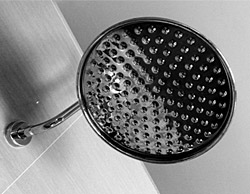Over the last few months Legionnaires’ disease has become a buzz topic with in lettings circles. As a landlord you might have been receiving letters and emails from your lettings agent telling you that there is new legislation in place and now a risk assessment is required on your property from a fully qualified contractor to provide you with a Legionnaires testing certificate. The pricing for this test can be upwards of a £150, which is another huge financial outlay to consider when renting your property.
What is Legionnaires’ disease?
In case you’re not fully acquainted, Legionnaires’ disease is a potentially fatal form of pneumonia that particularly affects people already more at risk due to age, illness or immunosuppression. It can also cause less serious illnesses. The bacterium Legionella Pneumophila, which is often present in natural sources of water, can multiply to harmful levels in manmade water systems.
 So where have the changes come from?
So where have the changes come from?
Late last year the Health and Safety Executive (HSE) produced a revised, simplified version of the Approved Code of Practice (ACOP) ‘Legionnaires’ disease: The control of bacteria in water systems L8′. It is these revisions that have sparked the changes we are seeing.
The Myth
The myth is that the changes to the ACOP means that there are more stringent regulations in place for landlords and that risk assessments now need to be carried out on rental properties. Landlords are being told that these assessments should be carried out by qualified contractors.
The Truth
The revisions to that were made to the ACOP last year didn’t change or alter the responsibilities placed on landlords in any way. On a post issued by the HSE’s website they have said that…
“Consultants and letting agents are i) using the revised L8 ACOP to infer there is new legislation regarding landlords responsibilities and ii) misrepresenting what the law requires of landlords of domestic rented properties in relation to assessing and controlling the risks of exposure to Legionella bacteria of their tenants, for financial gain.
Health and Safety law does not require landlords to produce a ‘Legionnaires testing certificate’. Legionella testing is required only in exceptional circumstances and generally not in domestic hot and cold water systems. Such letting agents and consultants are scaremongering landlords, for financial gain, by misinterpreting and exaggerating the legal requirements to manage and control legionella in domestic premises.”
As there have been no changes to the code of practise the same simple measures are required from landlords to assess and manage the risk of Legionella exposure to their tenants.
What is required from you?
Simple control measures can help manage the risk of exposure to Legionella and should be maintained, such as:
 flushing out the system before letting the property
flushing out the system before letting the property- avoiding debris getting into the system (eg ensure the cold water tanks, where fitted, have a tight-fitting lid)
- setting control parameters (eg setting the temperature of the calorifier to ensure water is stored at 60 °C)
- making sure any redundant pipework identified is removed
- advising tenants to regularly clean and disinfect showerheads
Landlords should inform tenants of the potential risk of exposure to Legionella and its consequences. Tenants should be advised to inform the landlord if the hot water is not heating properly or if there are any other problems with the system, so that appropriate action can be taken.
The risk may increase where the property is unoccupied for a short period. It is important that water is not allowed to stagnate within the water system and so dwellings that are vacant for extended periods should be managed carefully. As a general principle, outlets on hot and cold water systems should be used at least once a week to maintain a degree of water flow and minimise the chances of stagnation. To manage the risks during non-occupancy, consider implementing a suitable flushing regime or other measures, such as draining the system if the dwelling is to remain vacant for long periods.
Want more information….
www.hse.gov.uk/legionnaires/faqs.htm#Landlord
http://www.arla.co.uk/media/610774/legionaires-guidance.pdf
http://www.hse.gov.uk/myth/myth-busting/2015/case357-consultants-letting-agents-exposure-to-legionella.htm
http://blog.painsmith.co.uk/2015/05/15/legionnaires-disease-and-the-hse

